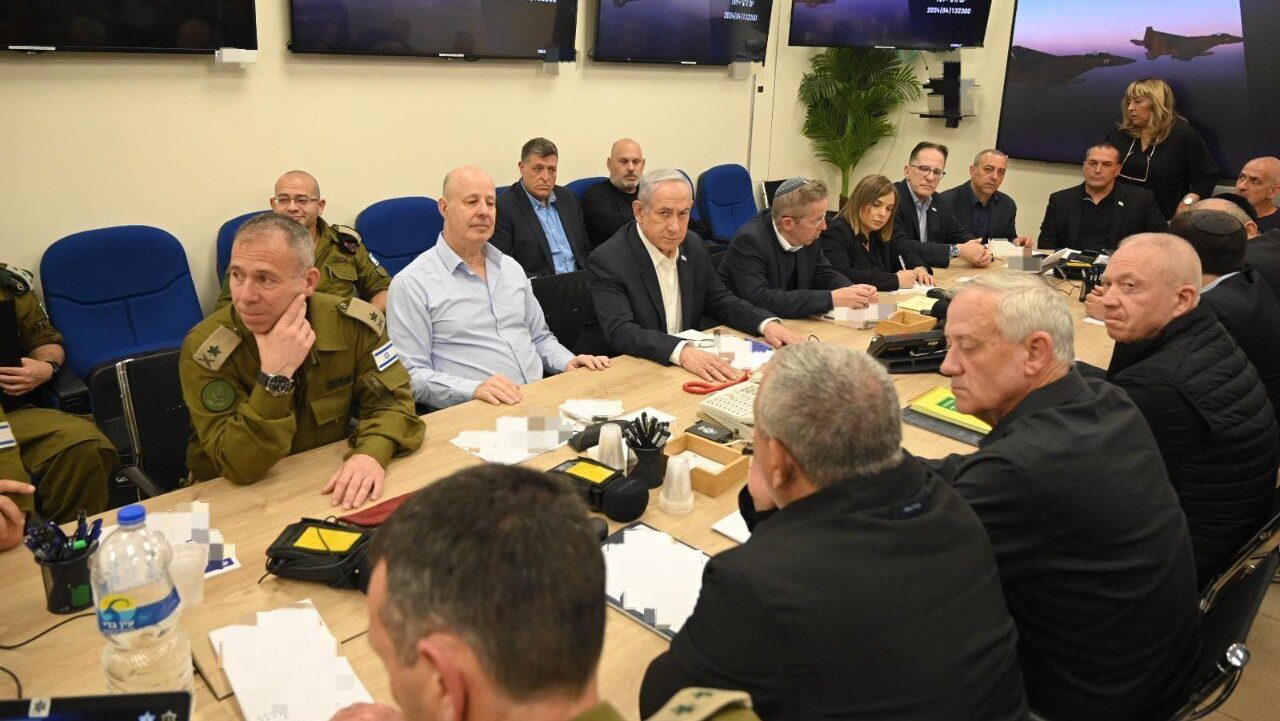Netanyahu’s Cabinet Divided Over Response to Iran’s Extensive Missile Attack
After extensive deliberations on Sunday afternoon that lasted over three hours, Israel’s war cabinet failed to reach a decision on how to respond to Iran’s extensive missile and drone attack that took place Saturday night. This indecision comes despite several advisories from the U.S., including a direct plea from President Joe Biden to Prime Minister Benjamin Netanyahu, urging a thoughtful and strategic response.
Israel’s Channel 12 News reported that the war cabinet is expected to meet again soon to continue discussions. Although a firm decision was not made, signals of a forthcoming response were clear. An Israeli official quoted by Israel Hayom expressed a definite stance, stating, “There will be a response.” Similarly, NBC quoted a source from the Prime Minister’s Office emphasizing the need for the IDF to develop strategic options, underlining that a response from Israel was inevitable.
Despite these firm intentions, the cabinet remains divided over the timing and scale of any retaliatory action, as highlighted by Reuters. This division surfaced in the immediate aftermath of Iran’s aggressive assault, which saw about 350 ballistic missiles, cruise missiles, and drones launched at Israel—a military feat largely neutralized by Israel’s defense systems with a 99% interception success rate.
The suggestion for an immediate retaliatory strike during Iran’s ongoing attack was proposed by War Cabinet Minister Benny Gantz and supported by Gadi Eisenkot, both of the National Unity party. However, this was opposed by Prime Minister Netanyahu, Defense Minister Yoav Gallant, and IDF Chief Herzi Halevi, among others, due to the operational strain and focus required to counter the immediate threat.
In light of the successful defense and subsequent discussions with President Biden, the urgency for an immediate Israeli response was reconsidered. Meanwhile, unconfirmed reports from Channel 12 suggested that the US did not veto any Israeli action but requested prior notification and coordination.
Further diplomatic maneuvers were evident as Israel’s Foreign Minister Israel Katz engaged with international counterparts, advocating for increased sanctions against Iran and the designation of the Islamic Revolutionary Guard Corps as a terrorist organization.


